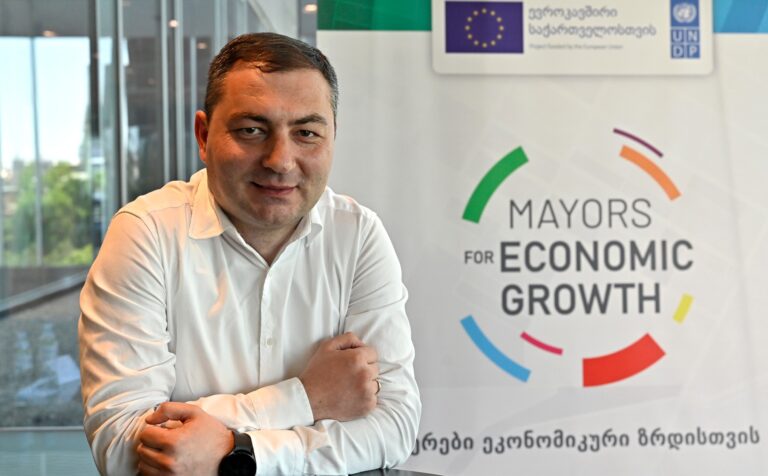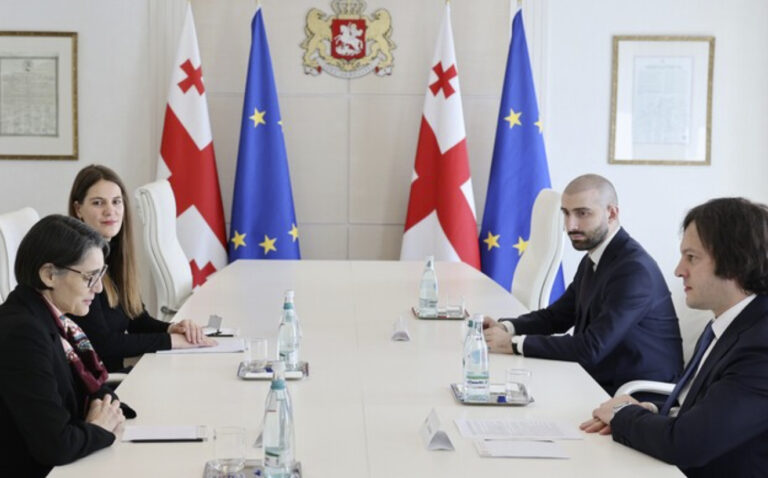
EU annual report on Georgia: some progress in Association Agreement implementation and the need for further inclusive reforms
The European Union has published its annual Association Implementation Report on Georgia, which reviews Georgia’s progress in implementing reforms under the EU-Georgia Association Agreement over the past year. The publication comes ahead of the next EU-Georgia Association Council meeting scheduled for 6 September 2022.
“Georgia continued its reform path under difficult circumstances, against the background of its socio-economic recovery from COVID-19, a tense political environment and Russia’s war of aggression against Ukraine,” said the EU High Representative Josep Borrell. “However, we have seen setbacks in the key areas of rule of law, governance and human rights. As Georgia embarks on the new phase of its relations with the EU, with its European perspective, Georgia needs to take a responsible and conscientious approach that matches its stated objectives and its citizens’ aspirations.”
Key findings
A report prepared by the European External Action Service (EEAS) and the services of the European Commission shows that the EU-Georgia Association Agreement continues to be a driving force for reform. Overall, the process of aligning national legislation with EU legislation under the Association Agreement, including the Deep and Comprehensive Free Trade Area, is well underway and successful. Inclusive and green growth remains central to the EU-Georgia cooperation. In 2021, the EU continued assistance related to COVID-19 and contributed to a strong and sustainable socio-economic recovery, laying the groundwork for the implementation of the Eastern Partnership’s economic and investment plan.
“However, in 2021, challenges threatened to undermine the country’s democratic foundations and there were setbacks with regard to the rule of law. This demonstrates the need for a renewed and serious commitment to democratic consolidation, judicial reforms, and action to reduce political polarisation and to strengthen the rule of law and to guarantee a professional and pluralistic and independent media environment. These are essential priorities for Georgia to advance on its European path,” says a press release by the EEAS.
“The ball is now in Georgia’s court. A serious commitment to democratic consolidation, judicial reforms, strengthening the rule of law as well as fight against corruption and organised crime will be key,” said Olivér Várhelyi, Commissioner for Neighbourhood and Enlargement.
The EU-Georgia Association Agreement, which includes a Deep and Comprehensive Free Trade Area, was fully actioned on 1 July 2016. It deepens political ties, strengthens economic ties and respects shared values, and is the basis for EU-Georgian cooperation and EU support to reforms in Georgia.
Find out more
MOST READ
SEE ALSO

EU and UNDP launch Academy for Financial and Investment Readiness for Georgian municipalities

Voice Your Vision: Young European Ambassadors take part in European Forum of Young Leaders in Warsaw

Recently appointed Head of EU Monitoring Mission meets with Georgian Prime Minister

EU, UN and Austria launch new project to improve air quality in Georgia

‘Not in line with EU core norms and values’: EU urges Georgia to refrain from adopting law on foreign influence
More campaign pages:
Interested in the latest news and opportunities?
This website is managed by the EU-funded Regional Communication Programme for the Eastern Neighbourhood ('EU NEIGHBOURS east’), which complements and supports the communication of the Delegations of the European Union in the Eastern partner countries, and works under the guidance of the European Commission’s Directorate-General for Neighbourhood Policy and Enlargement Negotiations, and the European External Action Service. EU NEIGHBOURS east is implemented by a GOPA PACE-led consortium. It is part of the larger Neighbourhood Communication Programme (2020-2024) for the EU's Eastern and Southern Neighbourhood, which also includes 'EU NEIGHBOURS south’ project that runs the EU Neighbours portal.

The information on this site is subject to a Disclaimer and Protection of personal data. © European Union,







